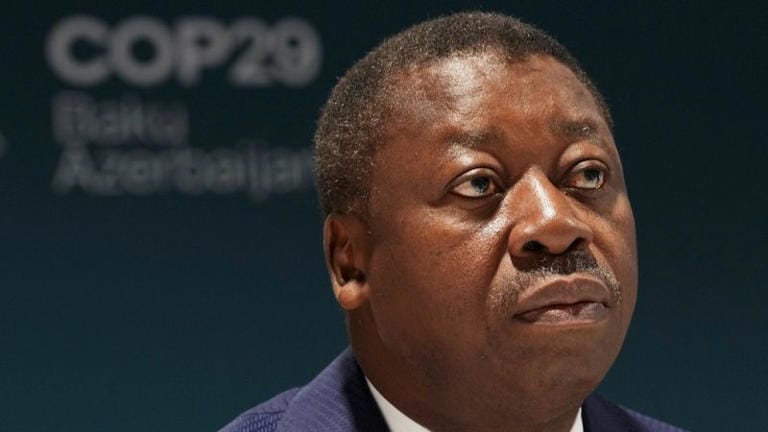Togo’s President Faure Gnassingbé is facing mounting domestic and international criticism after his government forcefully suppressed protests sparked by controversial constitutional reforms that could enable him to extend his grip on power indefinitely.
Demonstrations broke out late last week in the capital, Lomé, and were echoed online, with citizens expressing outrage over a newly adopted political framework. Under the revised system, Gnassingbé, who has ruled since 2005 following the death of his father, now holds the position of President of the Council of Ministers. This newly empowered role comes with no term limits and grants him the ability to be reappointed by parliament without a nationwide vote.
Human rights advocates and opposition leaders have condemned the move as undemocratic, branding it a “constitutional coup” aimed at consolidating the president’s authority without public accountability. Activists argue the new structure essentially removes any meaningful electoral challenge to Gnassingbé’s continued rule.
On Tuesday, civil society groups voiced alarm over the arrests and reported mistreatment of dozens of individuals who participated in the recent protests. According to a local rights organization, of the approximately 80 demonstrators detained, around 40 were released by Monday night. However, at least 25 remain in custody. The group has called on the authorities to release all remaining detainees immediately.
“There are credible reports that many were beaten during arrest,” said Aimé Adi, director of Amnesty International’s office in Togo. He emphasized the importance of upholding the rights of citizens to peaceful assembly and free expression.
The coalition “Hands Off My Constitution,” which brings together several political parties and activist groups, issued a statement calling not only for the release of detainees but also for broader political change. “After 20 years of absolute and repressive rule under Faure Gnassingbé, the people want an end to this regime, which has nothing left to offer,” the group declared.
Public demonstrations in Togo have been rare since 2022, when a violent incident at Lomé’s main market led to a nationwide ban on protests. Despite this, the latest political developments have triggered a surge in civil resistance, as many citizens see the constitutional change as a step backward for democracy in a region already grappling with authoritarian drift and military takeovers.
In response to the growing backlash, Togo’s public prosecutor Talaka Mawama defended the arrests, describing the protests as “part of a revolt against the institutions of the Republic.” His statement reflects the government’s firm stance on suppressing dissent, further fueling concerns about the erosion of democratic norms.
The unfolding situation in Togo underscores broader regional anxieties about governance and democratic backsliding, especially in West Africa, where several countries have experienced coups and extended presidencies in recent years. As the crisis deepens, observers warn that the government’s heavy-handed response could spark further unrest in the weeks ahead.



